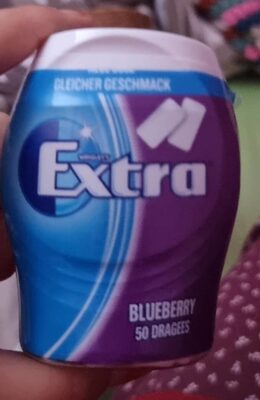
Barcode: 4009900538664
DOUBTFUL
📝 Reason: The product contains ingredients with doubtful Halal status, such as glycerin and aspartame, due to lack of specific source information or presence in the Doubtful_Ecodes_list. According to Islamic dietary laws, any doubt about the Halal status of an ingredient makes the entire product doubtful. Quran 5:3 emphasizes the importance of consuming only what is Halal and Tayyib (pure).
🏷️ Category: ["snacks", "sweet-snacks", "confectioneries", "chewing-gum"]
🏭 Brand: ["wrigley-s"]
📄 Certificates: contains-a-source-of-phenylalanine, Vegetarisch, Vegan
Ingredients:
Details
Understanding the Halal Status of Wrigley’s Product
As consumers become increasingly conscious of their dietary choices, the question of whether a product is Halal or not is crucial, especially for the Muslim community. Today, we delve into the Halal status of Wrigley’s product, which has become a popular snack option among many. This investigation will detail the key ingredients involved, focusing on their origins and their corresponding Halal status.
What Does Halal Mean?
In Islamic dietary laws, Halal is defined as anything that is permissible for Muslims to eat or drink. The opposite of Halal is Haram, which means forbidden. Any doubt regarding the Halal status of an item can render it doubtful or completely non-Halal. This principle is vital as reflected by the Quran 5:3, which emphasizes consuming what is Halal and Tayyib (pure).
Ingredients Overview
The product in question contains a variety of ingredients that lead to its dubious Halal classification. Let's take a closer look at each ingredient:
- Sweetener Xylitol: Generally considered Halal as it is derived from plant sources. Learn More
- Sorbitol: Also generally considered Halal due to its plant origins. Learn More
- Cocoa Mass: Typically derived from cocoa beans, making it Halal-friendly. Learn More
- Thickening agent Gum Arabic (E414): It is derived from the sap of the acacia tree and is classified as Halal. Learn More
- Humectant Glycerin (E422): This is marked as doubtful as it can be sourced from both plants and animals. Without specific source information, caution is advised. Learn More
- Acidifying Agent Citric Acid (E330): Typically derived from plant sources and recognized as Halal. Learn More
- Flavors: The Halal status is doubtful without precise information on their source. Learn More
- Sweetener Mannitol: Considered Halal, derived from plant sources. Learn More
- Emulsifier Soy Lecithin (E322): Halal since it is derived from soybeans. Learn More
- Sweetener Aspartame (E951): This ingredient is marked as doubtful as it appears in the Doubtful_Ecodes_list. Learn More
- Acesulfame K (E950): Recognized as Halal since it is a synthetic compound not derived from Haram sources. Learn More
- Acidifying agent Fumaric Acid (E297): Halal, typically derived from plant sources. Learn More
- Coating Agent Carnauba Wax (E903): Derived from leaves of the carnauba palm, thus Halal. Learn More
- Antioxidant BHA (E320): Classified as doubtful since it can come from both plant and animal sources without specific sourcing details. Learn More
Conclusion: A Caution for Consumers
The culmination of these ingredients results in Wrigley’s product possessing a doubtful Halal status. Products containing ingredients such as glycerin, aspartame, and flavors, which lack transparency on their sources, challenge the certainty required by Halal dietary standards.
As a responsible consumer, it is crucial to approach such products with caution. Where uncertainty exists, abstaining is often the best course of action. Always seek clarity from brands regarding the Halal certification and sourcing of ingredients, as this not only supports your dietary needs but also aligns with Islamic principles.

